Alternative Spring Break provides hands-on experience for SIS students
The Wayne State University School of Information Sciences (SIS) hosted Alternative Spring Break (ASB), a competitive program in which chosen applicants are paired with one of the country's premiere information organizations for an intensive week-long internship that aligns with the student's area of interest.
As pandemic restrictions eased this year, many students were able to participate in the unique and hands-on program. The school’s partnering institutions, including the Smithsonian Anacostia Community Museum in Washington, D.C., Benson Ford Research Center, the Hoover Presidential Library, Maryland State Archives and Wayne State’s own Walter P. Reuther Library.
The valuable work experience and networking opportunities provided by the ASB program can make a huge difference for students as they graduate and transition to the workforce. Eight outstanding students were accepted to the 2022 ASB program. Read first-hand accounts about their unique experiences below.
Rachel Walpole
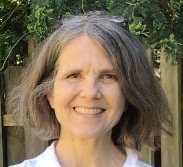 Benson Ford Research Center
Benson Ford Research Center
The Henry Ford, Dearborn, Michigan
“I would absolutely recommend ASB to students! It offers hands-on, behind-the-scenes experience with archival practice, a chance to meet and talk with professionals in the field, and to get a sense of how all the many parts and tasks fit together.”
I spent my Alternative Spring Break creating an inventory of an assembled collection of historic children's books, published primarily in the 19th century United States. They are often small volumes of just a few pages, with plain paper covers, costing a few pennies. Authors are rarely cited, just the publisher who is often the printer and the merchant as well, so title pages include the publisher's storefront street address and back covers have lots of self-promotion. Many of the books were created by religious organizations, and even those commercially produced tend to have a highly moral agenda. Obviously, the collection itself was a highlight of the week for me. Additional highlights include a behind-the-scenes tour of the Henry Ford Museum, its library and archive, as well as the opportunity to sit in on a collections committee meeting to hear curators discuss possible acquisitions.
My week reminded me, yet again, of the power of material culture to tell fascinating stories about long-ago lives, and to raise equally fascinating questions. Much can be deduced from children's books, not only about the state of children's literature at the time but also about the prevailing notion of childhood itself, about family dynamics, about the business of publishing and the manufacture of books. Each observation inevitably spawns more questions. I am looking forward to returning to The Henry Ford as a regular volunteer, to continue my work on inventorying and then researching the collection!
I would absolutely recommend ASB to other students! It offers hands-on, behind-the-scenes experience with archival practice, a chance to meet and talk with professionals in the field, and to get a sense of how all the many parts and tasks fit together. Those are experiences and insights that simply cannot be gotten in the classroom. There is a huge difference between learning in lecture about the backlog problem that so many archives face, and seeing the piles and shelves and even rooms of materials waiting to be processed by the archivist who, nevertheless, takes the time to share her delight in her current project – a collection of receipts from an 18th-century dairy!
Rikki Reynolds
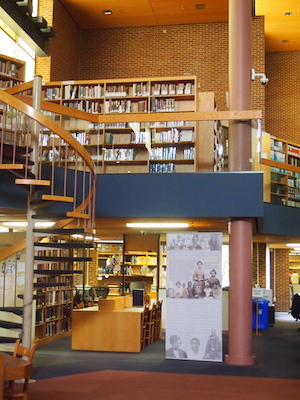 Maryland State Archives
Maryland State Archives
Annapolis, Maryland
“I would recommend ASB to archival students eager to get exposure to archival worksites. The most impactful part of this experience was getting to meet and talk to MSA staff, who were extremely generous with their time and insight.”
During my Alternative Spring Break placement, I worked with the Maryland State Archives' Plat Indexing Project reviewing and updating descriptive data in their State Highway Plats collection. This collection contains both contemporary and historical plats, which are map-like representations of land ownership and property boundaries. MSA was an early adopter of and innovator in digital archives, and their digitized plats collection is massive and growing. People access these kinds of records for a wide range of reasons, from supporting legal and political claims to tracing the history of development and state land management. Ensuring descriptive accuracy and improving discoverability of these materials supports the vision of making archives and records meaningfully accessible parts of people’s everyday lives.
Since COVID, the team at MSA has adapted their internship and practicum programs, like Alternative Spring Break, to accommodate remote work. This narrows the range of tasks we’re able to participate in, but it has broadened access to the programs to people like myself, who would not necessarily be able to travel to a short-term internship. I especially appreciated hearing from archivists about how their practice has been shaped by the pandemic in general—not simply forcing them to limit or change how they provide reference services and field records requests, but giving them the opportunity to study, assess and reevaluate the (remote, digital and physical) access they provide. It was a concrete reminder that digitization operates in a continuum of access and of how much of archivists’ work is planning and workflow management.
For me, the most impactful part of this experience was getting to meet and talk to MSA staff, who were extremely generous with their time and insight. These conversations were not only illuminating in a practical sense, helping me understand how archival functions fit together and giving me a sense of operations that we don’t necessarily learn about in archival studies coursework. It was also very grounding and affirming to hear from archival workers with different backgrounds about their day-to-day work, their users, their paths to the profession and their passion for this work. I noted something that Rachel Frazier, MSA’s search room coordinator, said while describing the kinds of records requests she encounters on a weekly basis: this work has “real quality of life effects.” It was an encouraging reminder to me, as I make a career transition to archives from library access services.
Amber Carnahan
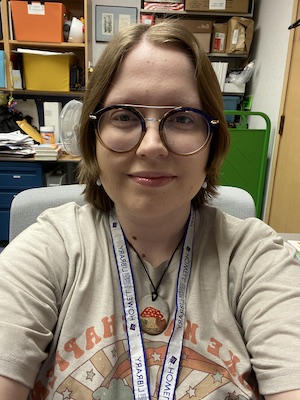 Smithsonian Institution Archives: Anacostia Community Museum
Smithsonian Institution Archives: Anacostia Community Museum
Washington, D.C.
“It’s a great way to see a week in the life of a digital archivist and get a chance to work alongside fellow professionals as you gain experience in your desired area.”
It was an interesting experience to share ideas back and forth with my ASB supervisor to determine needed subjects and best descriptions for the content as I examined PDFs of contact sheets and added relevant authorized subjects for each contact sheet into an excel spreadsheet, which worked alongside ArchivesSpace, a community supported open-source software. This project offered me the experience to learn more about a career I’m interested in and gain practical skills that I can include on my resume and put into practice in future digitization projects. It’s a great way to see a week in the life of a digital archivist and get a chance to work alongside fellow professionals as you gain experience in your desired area.
Robert Browning
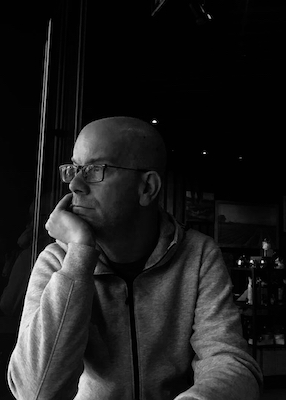 Massachusetts Institute of Technology
Massachusetts Institute of Technology
Cambridge, Massachusetts
“I feel that students should be open to different experiences because you never know what may catch your interest when you least expect it.”
My ASB experience focused on working with MIT's digital archivist to conduct quality assurance of web crawls using the Archive-It platform to archive the university’s websites. What was interesting to me was how much we take for granted how extensive websites can be and how much storage is required to save them. I learned that this necessary work is time-consuming and requires a lot of patience and attention to detail.
I feel that the experience gave me exposure to an aspect of the field I had very little background in, but learned quickly when working deliberately through each website that it was not as difficult as it seemed. I came away with a greater appreciation for the issues within the field of digital archiving. Our digital materials and memories should not be taken for granted. They are just as fragile, if not more so, as analog ones and should be valued and saved with equal care.
I think ASB allows students to get a glimpse of an aspect of the field they may have no prior experience with. Some may feel a bit of trepidation in learning to use a new technology in this frequently changing field, but you may find that once you get a feel for it, it can provide a real sense of accomplishment. I feel that students should be open to different experiences because you never know what may catch your interest when you least expect it.
Spencer Miller
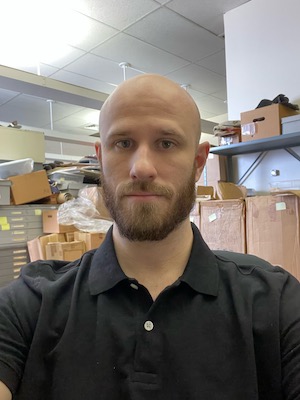 Smithsonian Institution Archives: Anacostia Community Museum
Smithsonian Institution Archives: Anacostia Community Museum
Washington, D.C.
“The chance to gain experience in a professional setting while networking within the field is immensely valuable.”
Over the course of the week I worked with the Anacostia Community Museum’s New Negro Opinion newspaper collection. The focus of my work was providing metadata and subject headings for the newspapers in the collection, by means of an excel spreadsheet. The work required analyzing each newspaper and determining what subject headings best fit to properly identify each item and create discoverability. This was a great experience that provided an excellent opportunity to learn on the job. The chance to gain experience in a professional setting while networking within the field is immensely valuable. Also, the work I did with the Anacostia was a chance to learn about an area of American history of which I admittedly did not have much knowledge. I would highly recommend the ASB program for any student who wants to meet new people in the field, interact with various collections and have job experience to add to their resume.
Daniel Kelly
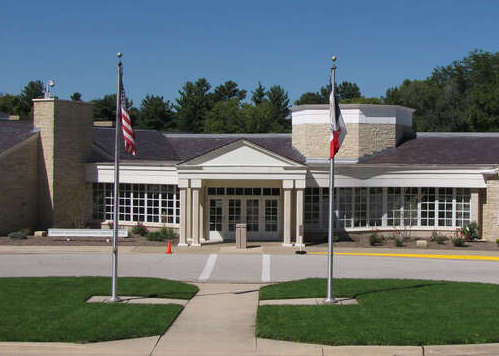 National Archives and Records Administration:
National Archives and Records Administration:
Herbert Hoover Presidential Library and Museum
West Branch, Iowa
“It was an honor to work at the Hoover Presidential Library. It was a great experience because I learned a lot and had the opportunity to work with an archivist in a professional setting.”
During my ASB experience I worked on the creation of a digital history project for the Hoover Presidential Library. I conducted the necessary research, wrote several pages of information on the project and provided the necessary metadata. I learned a great deal from this experience, and it was an honor to work at the Hoover Presidential Library with archivist Craig Wright. This project really cemented my ambition to pursue a career in federal service.
Eric Morgel
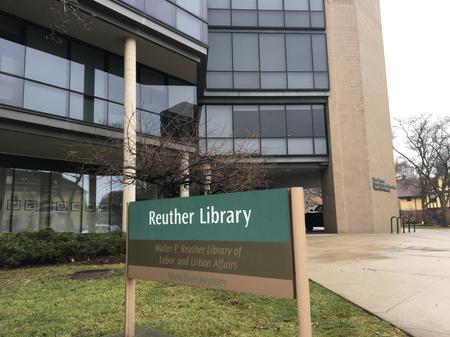 Walter P. Reuther Library, Archives of Labor and Urban Affairs
Walter P. Reuther Library, Archives of Labor and Urban Affairs
Wayne State University, Detroit, Michigan
“ASB is a great way for students to learn about the different aspects of archival work. The projects are so diverse and help students gain skills needed for the job market.”
I spent the week auditing oral history transcriptions for Wayne State’s Reuther Library. These oral histories are part of a larger collection of oral histories, which describe people's experience during the COVID-19 shutdown. My supervisor for the project, Troy Eller English, was great to work with; she was super responsive and helpful through the entire process. I found this experience surprisingly effective because I was able to read (and hear!) about different people's quarantine experiences.
These oral histories, in particular, are such important artifacts for the future, since they'll give researchers insight into what life was like at the beginning of the COVID-19 pandemic. I think ASB is a great way for students to learn more about the different aspects of archival work. The projects are so diverse each year; applying to ASB really helps students gain additional skills they need for the job market.
Leah Minadeo
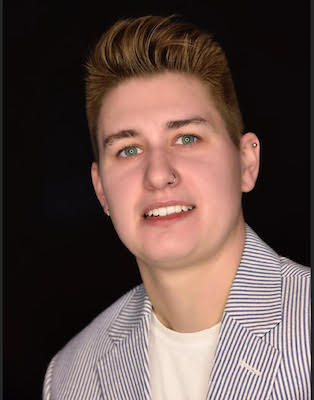 Benson Ford Research Center
Benson Ford Research Center
The Henry Ford, Dearborn, Michigan
“The most valuable part of my ASB experience was making connections and having the opportunity to ask professional archivists questions about personal and institutional practices.”
For my ASB project, I processed a small archival collection of illustrations and photographs by several historic American furniture manufacturers and created a finding aid. This collection was my first experience processing a collection of strictly visual materials and such a consistent genre of items. It was also as close to item-level processing I have done for a non-digitized collection.
I also appreciated the opportunity to sit in on a collections committee meeting, which helped clarify a process that was mysterious to me. This experience has been important to me as a newcomer in the field. In addition to adding to the variety of my work experience, I especially enjoyed making personal connections with archivists and institutions. Projects like the one I completed – where I have a finished product that I can point to on a resume – feel particularly valuable.
ASB is especially valuable for newcomers to the field, but it can also be beneficial to those who have prior work experience. ASB aims to provide meaningful and skilled experiences, so there’s really nothing to lose by applying or participating in an ASB project.